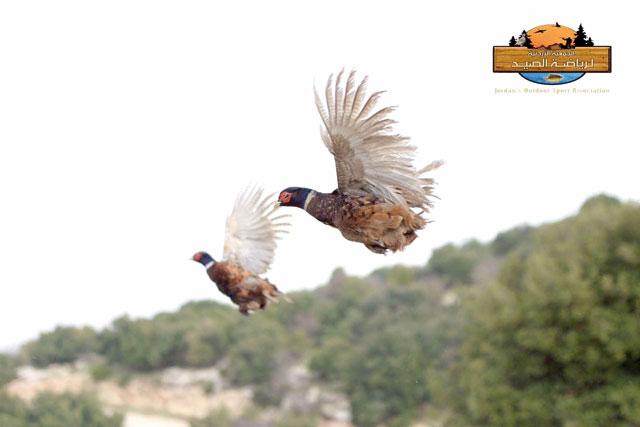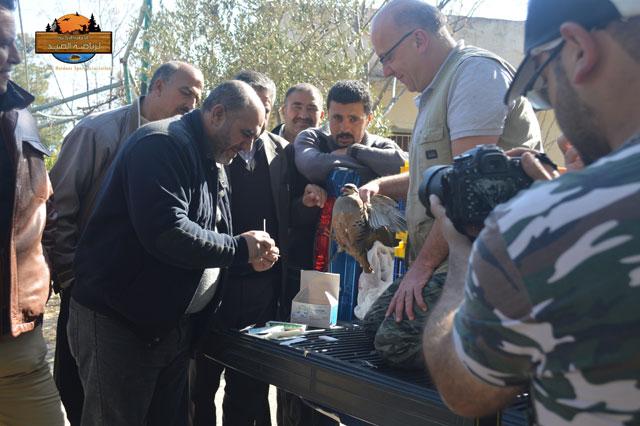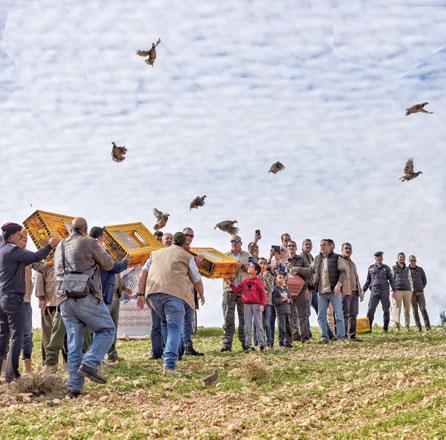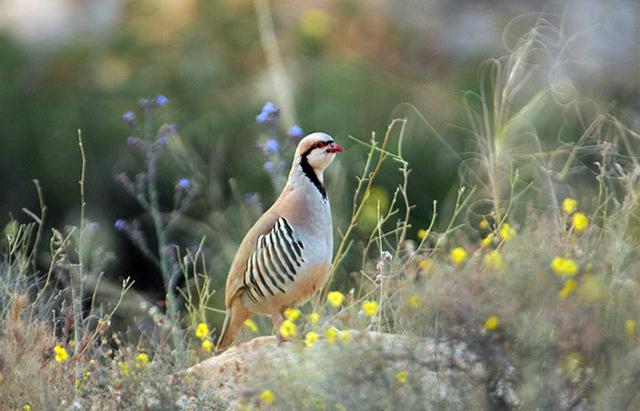You are here
850 endangered birds reintroduced to their habitat
By Ahmed Bani Mustafa - Jan 13,2018 - Last updated at Jan 13,2018

Birds are released in the wild on Friday after activists have bred hundreds of chukars and pheasants, whose numbers have been dwindling in their natural habital (Photo courtesy of Outdoor Sports Association)
AMMAN — Hundreds of pheasants and chukars, game birds highly prized by hunters, were reintroduced to their natural habitat to offset their dwindling numbers, an activist and an official said on Saturday.
Jordan’s Outdoor Sport Association released 850 birds in the Kingdom’s northern forests on Friday with the aim of reversing the decline in their numbers in the wild, said Ramzi Handal, the president of the association in remarks to The Jordan Times.
The release involved the fifth and sixth batch of chukars (a Eurasian upland gamebird in the pheasant family) and the first and the second of pheasants, said Handal.
“Unfortunately, the hunting sport in Jordan is messy, a matter which has left several local bird species in danger,” Handal said over the phone.
He added that the association’s activities and projects are also meant to draw the attention of policymakers to the dangers threatening the country’s wildlife.
In 2016, the Ministry of Agriculture issued a ban on the hunting of chukars and sand partridge for three years across the Kingdom.
The decision was based on studies which indicated that the numbers of chukars and sand partridges in their local natural habitat have been declining due to multiple factors, mainly random hunting and the destruction of the birds’ habitats and nests by hunters, according to the ministry.
The decline in the birds’ population is happening across the Mediterranean region, according to the Royal Society for the Conservation of Nature (RSCN), which said that aside from hunting, climate change and rising temperatures, which shorten the birds’ mating seasons, also threaten the survival of chukars.
Handal underlined that the project to increase the number of chukars in the wild is ongoing and more birds will be released in the future.
The activist highlighted that all the birds were examined to make sure they were free of diseases before being released into the wild.
Asked how it is possible to ensure the birds will adapt and survive, Handal said that all of the birds were bred in isolated woodland and are not domesticated.
“They are not used to seeing people,” Handal said, adding that instinct is key in helping them adapt and start a new wildlife, given that they were released at a young age (8 months).
Rangers, members of the association and volunteers will keep following up on the conditions of these birds in their new life.
The birds were bred and donated by Ghassan Khaiyat, according to the activist.
The activity was attended by members of the association, along with representatives from the Ministry of Environment, the Ministry of Agriculture and the Royal Department for Protecting Environment, among other stakeholders.
The association organises several activities throughout the year, such as planting trees, bird hunting, fishing and awareness and guidance seminars.
Related Articles
AMMAN — A new population of chukar, a game bird highly prized by hunters, has been released into the wild to offset its dwindling numbers, a
AMMAN — Despite continuous violations by hunters and “government indifference”, people will continue their struggle to protect nature, activ
AMMAN — For the first time in three decades, authorities have released hundreds of sand partridges into the wild in an attempt to reverse a

















